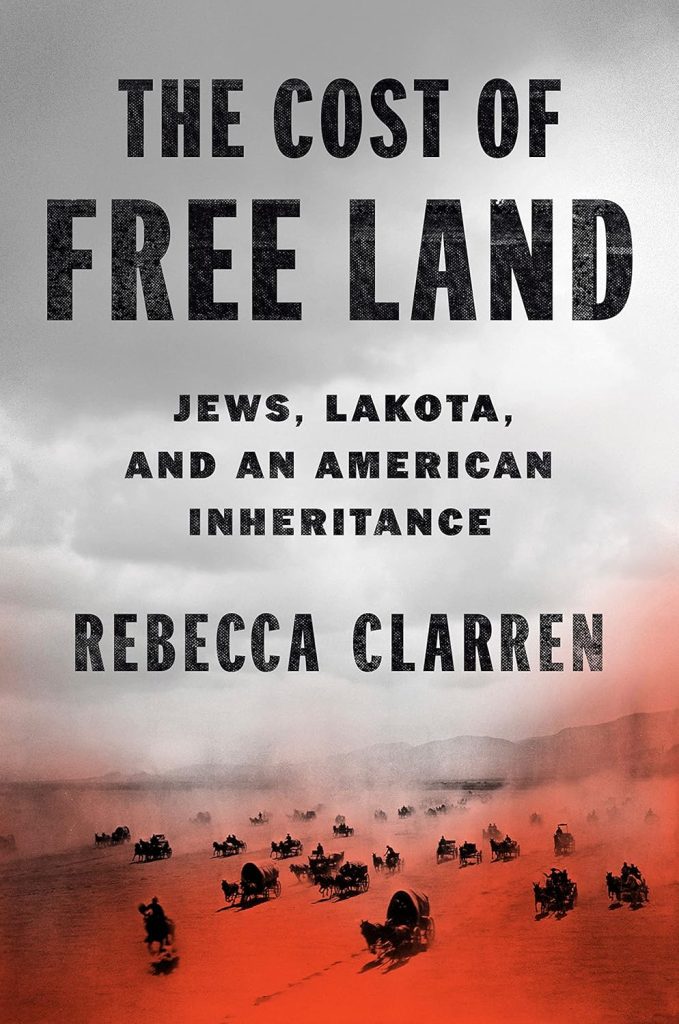Join Rebecca Clarren to discuss “The Cost of Free Land.”
AUTHOR EVENT DETAILS
11/21/2023 at 12:00 PM
JEWISH CULTURAL CENTER
1100 Berkshire Blvd. Suite 125
Wyomissing, PA
About the Author:
Rebecca Clarren has been writing about the American West for more than twenty years. She is the winner of the 2021 Whiting Nonfiction Grant for her work on The Cost of Free Land. Her journalism, for which she has won the Hillman Prize, an Alicia Patterson Foundation Fellowship, and ten grants from the Fund for Investigative Journalism, has appeared in such publications as Mother Jones, High Country News, The Nation, and Indian Country Today. Her debut novel, Kickdown (Sky Horse Press, 2018), was shortlisted for the PEN/Bellwether Prize.

About the Book:
“Sharply insightful . . . A monumental piece of work.”—The Boston Globe
An award-winning author investigates the entangled history of her Jewish ancestors’ land in South Dakota and the Lakota, who were forced off that land by the United States government
Growing up, Rebecca Clarren only knew the major plot points of her tenacious immigrant family’s origins. Her great-great-grandparents, the Sinykins, and their six children fled antisemitism in Russia and arrived in the United States at the turn of the 20th century, ultimately settling on a 160-acre homestead in South Dakota. Over the next few decades, despite tough years on a merciless prairie and multiple setbacks, the Sinykins became an American immigrant success story.
What none of Clarren’s ancestors ever mentioned was that their land, the foundation for much of their wealth, had been cruelly taken from the Lakota by the United States government. By the time the Sinykins moved to South Dakota, America had broken hundreds of treaties with hundreds of Indigenous nations across the continent, and the land that had once been reserved for the seven bands of the Lakota had been diminished, splintered, and handed for free, or practically free, to white settlers. In The Cost of Free Land, Clarren melds investigative reporting with personal family history to reveal the intertwined stories of her family and the Lakota, and the devastating cycle of loss of Indigenous land, culture, and resources that continues today.
With deep empathy and clarity of purpose, Clarren grapples with the personal and national consequences of this legacy of violence and dispossession. What does it mean to survive oppression only to perpetuate and benefit from the oppression of others? By shining a light on the people and families tangled up in this country’s difficult history, The Cost of Free Land invites readers to consider their own culpability and what, now, can be done.














